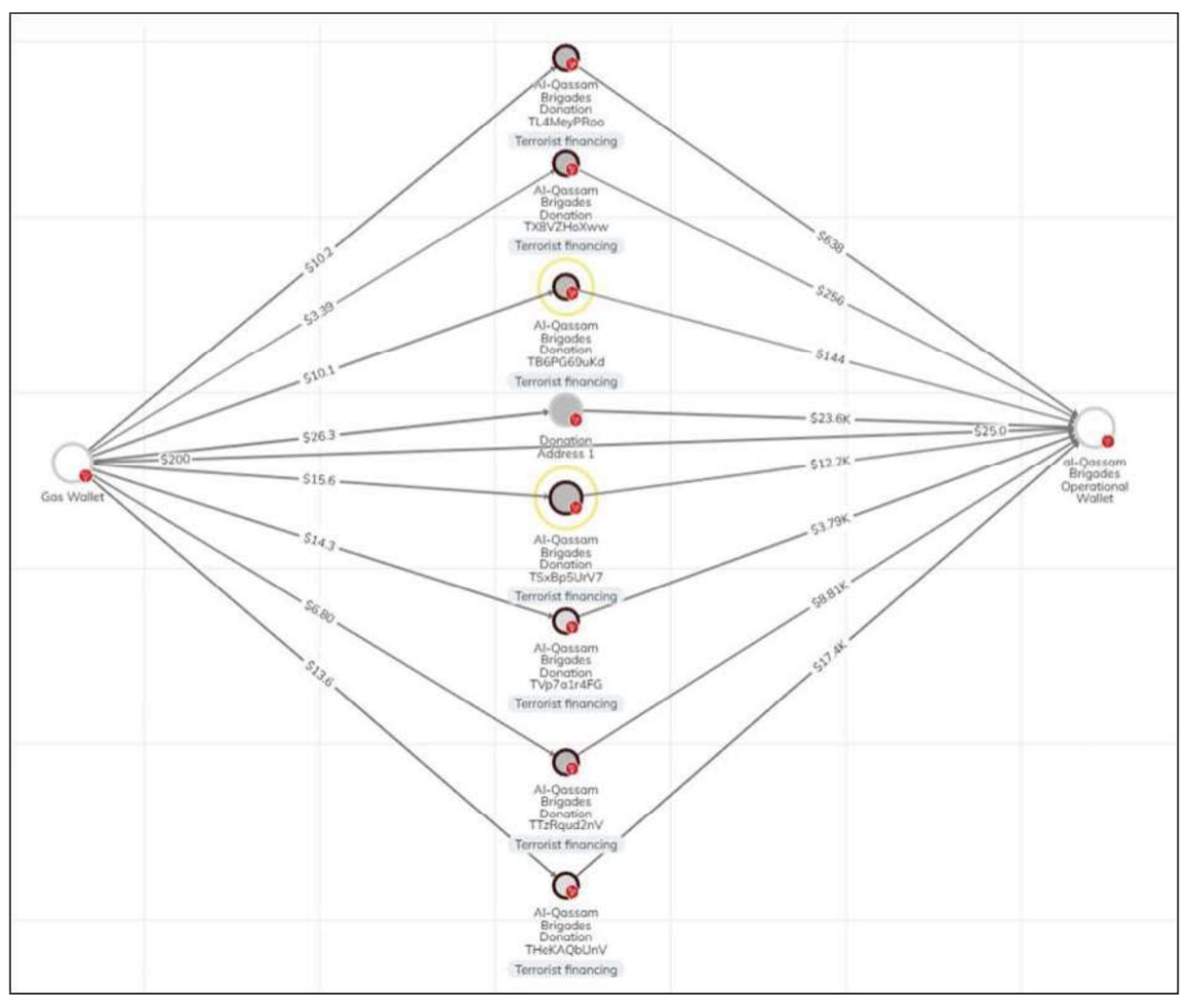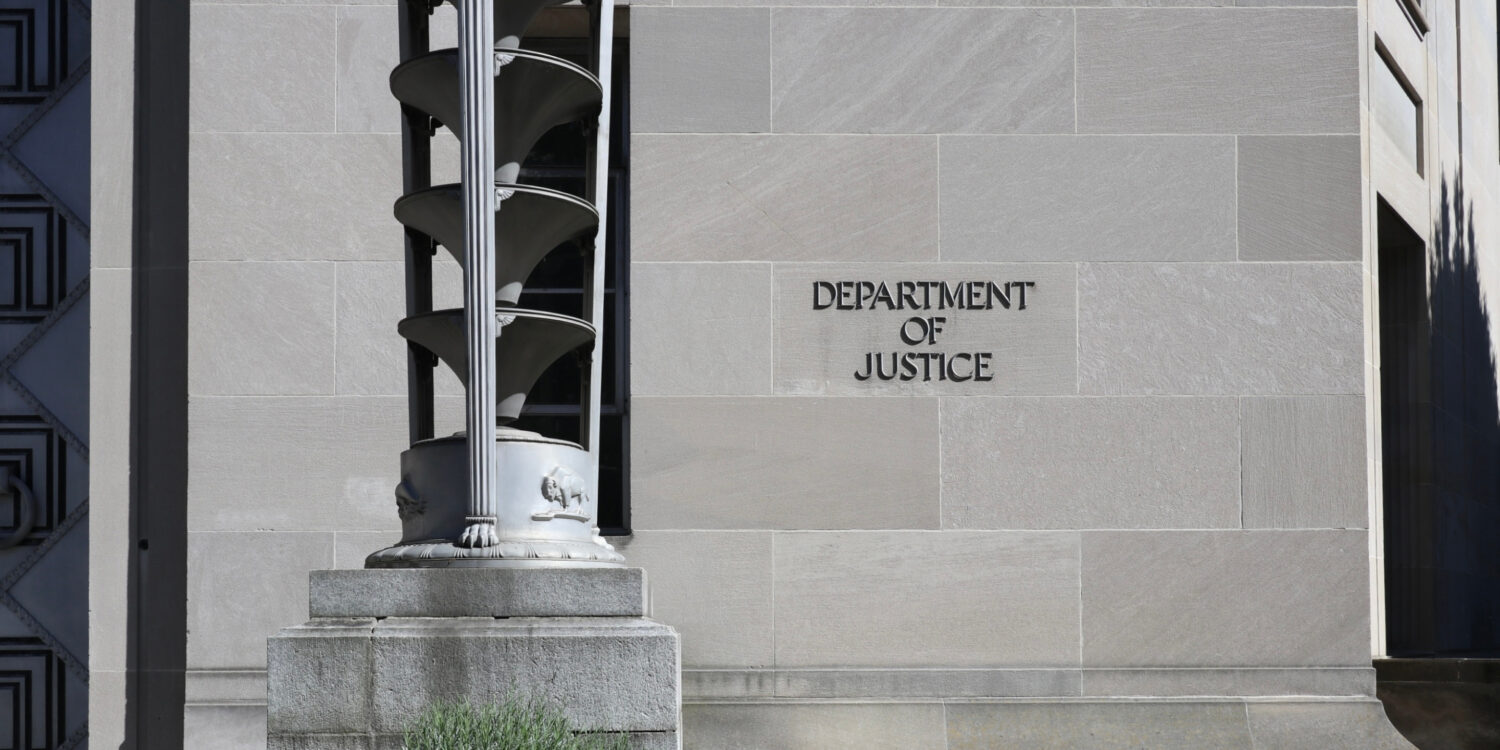On March 27, 2025, the United States Department of Justice (DOJ) announced a significant disruption of a Hamas terrorist financing scheme, following the seizure of approximately $200,000 in USDT used to fund the group’s activities. The operation, which was led by the Federal Bureau of Investigation (FBI) — particularly the Albuquerque Field Office — targeted multiple cryptocurrency addresses, including a set of at least 17 addresses shared through an encrypted group chat with Hamas supporters worldwide, which acquired $1.5 million through donations. Hamas’ recent actions come despite their announcement in April 2023 that they would halt crypto-related fundraising efforts. However, the DOJ’s affidavit explains that Hamas’ campaigns continued to operate, at least as recently as October 2024.
“Countering terrorism remains the FBI’s number one priority. By successfully disrupting access to these funds, we have weakened their ability to function,” stated a Special Agent of the Albuquerque Field Office. “This success demonstrates that financial warfare is a critical component to fight terrorism. We will continue to do everything in our power to protect the American people and pursue justice by depriving terrorist organizations of the resources they need to continue their illicit activity.”
In this blog, we’ll break down the details of the operation, examine the role of cryptocurrency in facilitating terrorist financing, and explore the broader implications for future counter-terrorism efforts.
Hamas’ on-chain activities
According to the DOJ, their disruption targeted a complex web of cryptocurrency addresses tied to Hamas that were being used to funnel financial resources to the terrorist organization. Hamas supporters were encouraged to donate to a set of at least 17 crypto addresses shared in an encrypted group chat. Additionally, supporters were encouraged to reach out for provision of a cryptocurrency address via email, one that has long been utilized by Al Qassam Brigades to fundraise.

The funds raised through these donations were sent into an operational wallet, which had received a total of roughly $1.5 million, then laundered through a series of digital currency exchanges. Their laundering process also involved suspected financiers and over-the-counter brokers.
Blockchain analytics played a major role in executing this disruption, as stated in the warrant: “In addition to using publicly-available blockchain explorers, law enforcement uses commercial services offered by several different blockchain-analysis companies to investigate virtual currency transactions,” the affidavit explained. “Through numerous unrelated investigations, law enforcement has found the information provided by these tools to be reliable.”
The following Chainalysis Reactor graph, which was shared in the seizure, highlights that law enforcement identified the connection to a gas funding address which was used to facilitate payment of transaction fees in order to fund the movement of payments from their donors to the Hamas operational wallet. Many of these addresses and their remaining balances were provided to the FBI by Binance and Tether, both of whom actively assisted in the seizure.

The importance of verifiable attribution is clear, per the affidavit, which stated, “through the course of numerous investigations, law enforcement has found the attribution of clusters provided by this Blockchain Analysis Software to be reliable.”
Implications for future counter-terrorism operations
This latest seizure underscores the growing emphasis on combating terrorist financing through on-chain analysis. The United States’ actions also signal a broader shift in the international community’s approach to counter-terrorism financing, reinforcing the need for governments, financial institutions, and blockchain companies to work together in curbing the flow of illicit funds to terrorist groups.
As Paolo Ardoino, Chief Executive Officer of Tether told us, “Tether is proud to proactively support global law enforcement efforts in combating the illicit use of stablecoins. The notion that criminals can use stablecoins to hide is simply false — every asset is on-chain, visible, and traceable in real time. This news underscores the unique advantages of on-chain finance in identifying and disrupting bad actors anywhere around the globe. We were pleased to once again assist the U.S. Department of Justice in its efforts to stop terrorist financing and will continue to work proactively with authorities around the world to safeguard the integrity of the financial ecosystem.”
As the global security landscape continues to evolve, it is likely that U.S. authorities will continue to focus on targeting blockchain-based infrastructure of terrorist organizations like Hamas. This disruption not only serves as a deterrent but also sets a precedent for future actions against the exploitation of crypto for nefarious purposes.
This website contains links to third-party sites that are not under the control of Chainalysis, Inc. or its affiliates (collectively “Chainalysis”). Access to such information does not imply association with, endorsement of, approval of, or recommendation by Chainalysis of the site or its operators, and Chainalysis is not responsible for the products, services, or other content hosted therein.
This material is for informational purposes only, and is not intended to provide legal, tax, financial, or investment advice. Recipients should consult their own advisors before making these types of decisions. Chainalysis has no responsibility or liability for any decision made or any other acts or omissions in connection with Recipient’s use of this material.
Chainalysis does not guarantee or warrant the accuracy, completeness, timeliness, suitability or validity of the information in this report and will not be responsible for any claim attributable to errors, omissions, or other inaccuracies of any part of such material.

